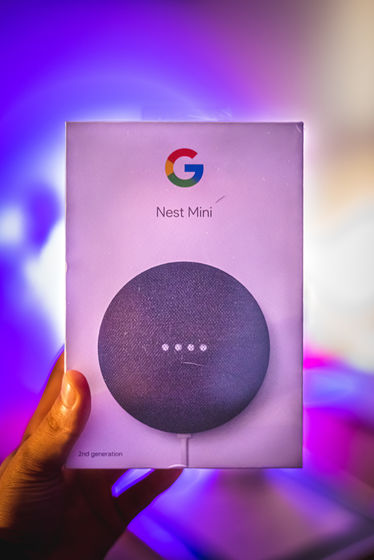The judgment that ``Google infringes Sonos' patent'' is overturned and the function of Google's smart speaker is revived with haste

Google, which has multiple smart speakers such as Google Home and Google Nest, is engaged in a legal battle with Sonos, which competes in the same smart speaker market. Meanwhile, the judge overturned the judgment that ``Google infringed Sonos' patent'', so the smart speaker function that Google had to delete was revived.
Google brings back multiple Speaker Groups, Sonos patent invalidated

Google wins reprieve from $32.5 mln verdict in Sonos patent fight | Reuters
https://www.reuters.com/legal/litigation/google-wins-reprieve-325-mln-verdict-sonos-patent-fight-2023-10-09/
Federal judge throws out $32.5 million win for Sonos against Google | TechCrunch
https://techcrunch.com/2023/10/10/federal-judge-throws-out-32-5-million-win-for-sonos-against-google/
Judge Slams Sonos, Rules Patents Invalid in Google Speaker Case
https://news.bloomberglaw.com/us-law-week/judge-slams-sonos-rules-patents-invalid-in-google-speaker-case
Judge tosses Sonos's $32.5M patent win against Google • The Register
https://www.theregister.com/2023/10/10/judge_sonos_google_patent/
The incident dates back to when home appliance manufacturer Sonos sued Google for ``infringing five patents related to smart speaker design.'' Google lost the lawsuit, and the International Trade Commission also determined that Google infringed Sonos' patents , resulting in the removal of features that allegedly infringed Sonos' patents, such as volume control, from Google smart speakers. I did.
The volume control function has been removed from Google's smart speakers, which is under fire, but what will be the impact on other devices such as Pixel? -GIGAZINE

The legal battle has continued since then, and in May 2023, Google was ordered to pay $32.5 million (approximately 4.8 billion yen) in damages for ``infringing the patent related to Sonos' multi-speaker function.'' It was done . This jury verdict forced Google to impose limits on its ability to create speaker groups . However, it has been revealed that this verdict was overturned by Judge William Alsup, a federal judge in the U.S. District Court for the Northern District of California.
Judge Alsup conducted an independent review of the two Sonos patents in question ( 10848885 and 10469966 ) and concluded that they were unenforceable. Regarding this decision, Judge Alsup stated, ``As of 2014, five years before Sonos filed its patent application and claims for patent infringement, Google, which is accused of patent infringement, was unable to deploy features related to the invention into its products.'' It shared its plans with Sonos. Since then, Google has started introducing its own features to enable the invention. In contrast, Sonos did not file a claim for the invention until 2019. 'It will take until 2020 to roll out features related to the invention in our products.' He added, ``This is not a case of an inventor creating something new that changes an industry.In this case, something new is born in an industry, and someone who claims to be the inventor comes out of nowhere.'' This is one of the long-standing cases seen in patent-related fields, where someone shows up and claims, ``That's my idea.''
Reuters reported that Sonos plans to appeal the ruling.

On the other hand, Google is sending messages regarding this ruling on its own blog and community.
On Google's official blog, Halima Delaine Prado, the company's general counsel, said, ``Sonos has been running a misleading campaign for years about the useful features of Google Home devices and smart speakers based on fake patents. The ruling states that Sonos' patent is invalid, meaning it should never have been granted in the first place, and is not legally enforceable. It acknowledges that it had developed the technology,'' he said, appealing that the judgment was in favor of Google. In addition, he states that ``reform is essential to the patent system'' to protect inventors while promoting innovation.
Update on Sonos' misleading patent campaign
https://blog.google/outreach-initiatives/public-policy/google-home-sonos-patent-update/

A blog for the Google Nest community, Google's smart home device, has also been updated, with a community manager saying, ``We recently made changes to speaker groups for Nest speakers, displays, and Chromecast. You can only belong to one speaker group at a time in the Google Home app, but a federal judge has ruled that two Sonos patents are invalid, saying Google's devices infringe on their patents. In light of this ruling, Google devices will now be able to belong to multiple speaker groups , and attempts to add devices to additional groups will no longer result in an error. This update will be implemented immediately. 'We are currently rolling out this change and will be rolling it out across devices and the Android Home app within the next 48 hours. This change will also be coming soon to the iOS version of the Home app.' He revealed that he is immediately restoring the removed features.
Update regarding recent changes to speaker groups ... - Google Nest Community
https://www.googlenestcommunity.com/t5/Blog/Update-regarding-recent-changes-to-speaker-groups-for-Nest-speakers/ba-p/489728

Please note that the Google official help page about creating and managing speaker groups clearly states that the following devices can only be added to one speaker group at a time using the Google Home app. It is expected that you will be able to participate in the speaker group.
・Google Nest Mini (2nd generation)
・Google Nest Audio
・Chromecast with Google TV (4K)
・Chromecast with Google TV (HD)
・Google Nest Hub (2nd generation)
・Google Nest Hub Max
・Google Nest Wifi expansion point
・Google Pixel Tablet (Hub mode)
Related Posts:






